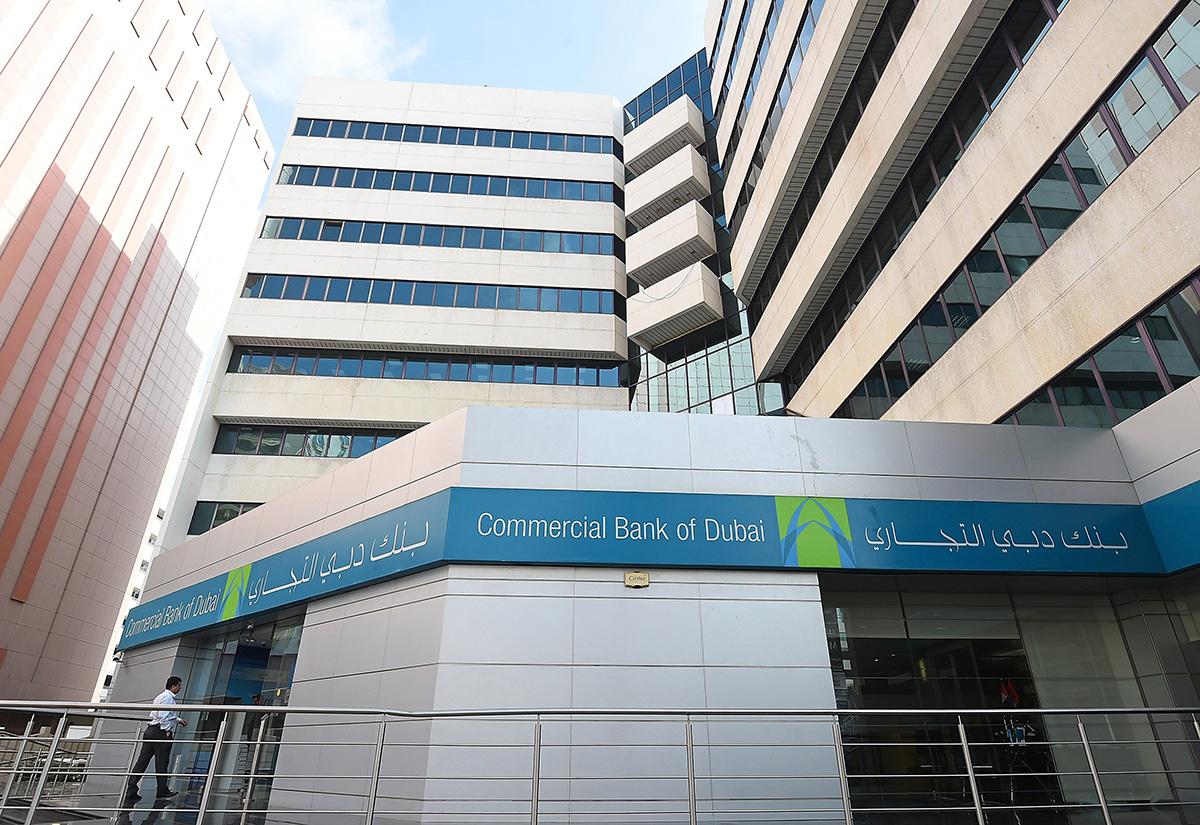One of the UAE’s leading banks witnessed a whopping 25 percent rise in net profit in the first half of 2019 compared to the same period last year, while its total assets also jumped 13.8 percent as of June 2019 compared to the same month in 2018. The Commercial Bank of Dubai (CBD), which is listed on the Dubai Financial Market (DFM), was incorporated in Dubai in 1969. Employing 1,512 staff from 49 nationalities, it is owned entirely by UAE nationals, including 20 percent by the Investment Corporation of Dubai (ICD).
Offering a wide range of conventional and Islamic banking products and services to corporate, commercial and personal banking customers, it operates a network of 17 branches, and has invested in an extensive network of 153 ATMs/CDMs.
The bank is led by CEO Dr. Bernd Van Linder, who previously served as chief executive and General Treasury Manager of the Saudi Hollandi Bank (now Alawwal Bank) from 2009 to 2016, before joining CBD in January 2017. He holds a PhD in Artificial Intelligence and an MBA in Financial Management.
“The result has been achieved through the successful execution of our strategy. We remain on track to deliver a record result for the full year,” Van Linder said of the results.
In March 2018, the CEO told Arabian Business blockchain is unlikely to play a significant role in cross-border remittances for “a very long time”, adding that cryptocurrencies are the only “real world” application of blockchain technology being implemented around the world.
“By real world, I mean an application that has surpassed the pilot stage. All the other [use cases] that I’ve been able to find are still pilots, whether it be cross-border remittances, KYC (know your customer) or legal contracts.
“Almost every bank in the world is a running a pilot using blockchain for those,” Van Linder said.
He added that he doesn’t believe blockchain is a viable alternative to existing cross-border money transfer systems, such as Society for Worldwide Interbank Financial Telecommunication (SWIFT) transfers.
However, he said that he sees the value of blockchain in other areas such as shared documentation in KYC applications or trade finance the distributed ledger that guarantees document security will be essential.
This year, the bank joined forces with one of the region’s largest telecommunications provider Etisalat to launch a co-branded CBD-Etisalat Credit Card, which will be available in two variants: Visa Platinum and Visa Signature. Cardholders will be able to earn and redeem points on Etisalat’s Smiles platform, which offers discounts, deals and experiences across categories such as shopping, entertainment, travel, dining, wellness and bill payments at over 300+ partners.
The bank also partnered with International money transfer organization Xpress Money, a Finablr company, to offer remittance solutions to Pakistan and Philippines for CBD customers. The partnership is facilitated by Xpress Money’s business solution FLEX.
In July this year, it announced a partnership with the Federal Electricity and Water Authority (FEWA) to provide payments and cash management solutions.
The bank has been recognised with a number of awards over the years, including the Best Digital Service Award in the special jury prize category at the Arab Digital Banking Excellence Awards 2018.
The event aims to recognize and highlight the efforts of the Arab banking and finance institutions in the development of the entire sector.
CBD also won the Best Cash Management Bank Award in the UAE for 2019 from leading online portal Global Banking and Finance Review, which covers banking, business and technology news and analysis.
The bank is one of the four largest in the UAE. In August 2018, they saw a combined net profit of AED8bn ($2.2bn), up 21 percent year on year, according to the Investors Service report by financial services firm Moody’s.
Profitability for the banks, which include First Abu Dhabi Bank, Emirates NBD, Abu Dhabi Commercial Bank and Dubai Islamic Bank, was largely driven by higher net interest income and lower provisions.
CBD in May denied reports it is considering mergers or acquisitions and said it remains committed to its current growth strategy.
The bank said in a statement “there are no discussions whatsoever concerning mergers, acquisitions or activities of a similar nature”.
The statement followed media reports that Al Futtaim Group – which owns a 10.5 percent stake in the bank – is examining options for the lender, which may include the sale of its stake.



